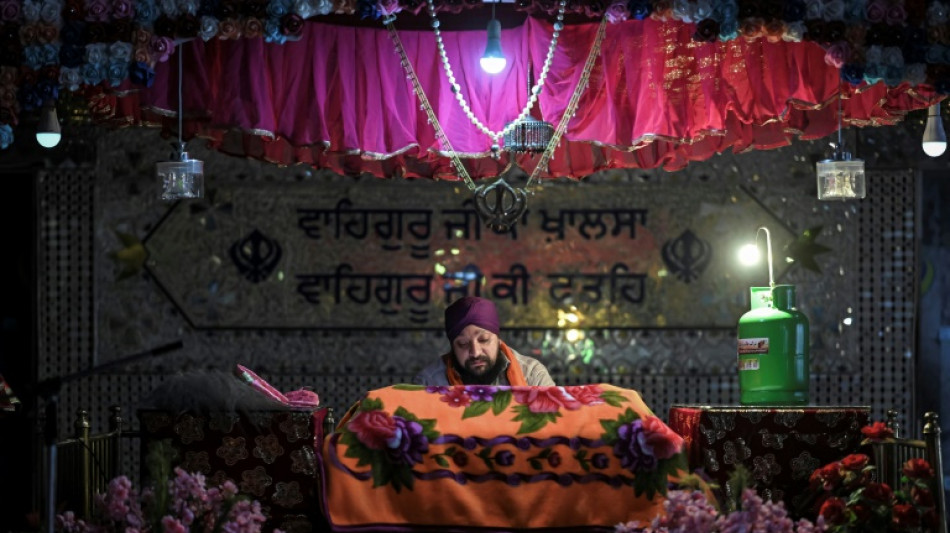
-
 'Amazing' feeling for Rees-Zammit on Wales return after NFL adventure
'Amazing' feeling for Rees-Zammit on Wales return after NFL adventure
-
'Cruel' police raids help, not hinder, Rio's criminal gangs: expert
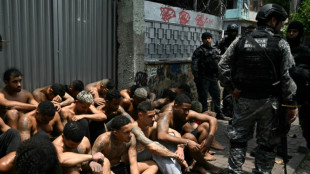
-
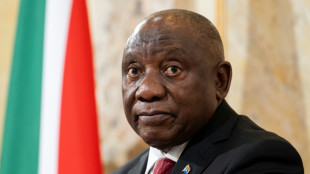 S. African president eyes better US tariff deal 'soon'
S. African president eyes better US tariff deal 'soon'
-
Sinner cruises in Paris Masters opener, Zverev keeps title defence alive

-
 Winter Olympics - 100 days to go to 'unforgettable Games'
Winter Olympics - 100 days to go to 'unforgettable Games'
-
Kiwi Plumtree to step down as Sharks head coach

-
 France to charge Louvre heist suspects with theft and conspiracy
France to charge Louvre heist suspects with theft and conspiracy
-
US media mogul John Malone to step down as head of business empire

-
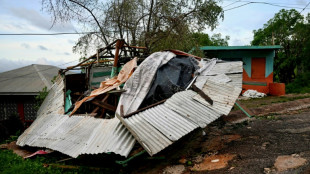 'Never been this bad': Jamaica surveys ruins in hurricane's wake
'Never been this bad': Jamaica surveys ruins in hurricane's wake
-
France adopts consent-based rape law

-
 Zverev survives scare to kickstart Paris Masters title defence
Zverev survives scare to kickstart Paris Masters title defence
-
Rabat to host 2026 African World Cup play-offs

-
 Wolvaardt-inspired South Africa crush England to reach Women's World Cup final
Wolvaardt-inspired South Africa crush England to reach Women's World Cup final
-
US says not withdrawing from Europe after troops cut

-
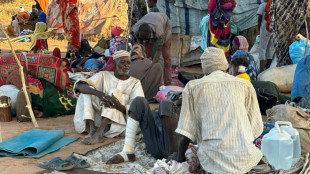 WHO urges Sudan ceasefire after alleged massacres in El-Fasher
WHO urges Sudan ceasefire after alleged massacres in El-Fasher
-
Under-fire UK govt deports migrant sex offender with £500

-
 AI chip giant Nvidia becomes world's first $5 trillion company
AI chip giant Nvidia becomes world's first $5 trillion company
-
Arsenal depth fuels Saka's belief in Premier League title charge

-
 Startup Character.AI to ban direct chat for minors after teen suicide
Startup Character.AI to ban direct chat for minors after teen suicide
-
132 killed in massive Rio police crackdown on gang: public defender
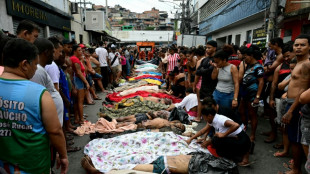
-
 Pedri joins growing Barcelona sickbay
Pedri joins growing Barcelona sickbay
-
Zambia and former Chelsea manager Grant part ways

-
 Russia sends teen who performed anti-war songs back to jail
Russia sends teen who performed anti-war songs back to jail
-
Caribbean reels from hurricane as homes, streets destroyed
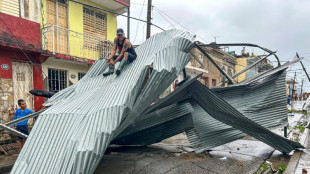
-
 Boeing reports $5.4-bn loss on large hit from 777X aircraft delays
Boeing reports $5.4-bn loss on large hit from 777X aircraft delays
-
Real Madrid's Vinicius says sorry for Clasico substitution huff

-
 Dutch vote in snap election seen as test for Europe's far-right
Dutch vote in snap election seen as test for Europe's far-right
-
Jihadist fuel blockade makes daily life a struggle for Bamako residents
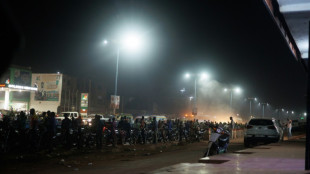
-
 De Bruyne goes under the knife for hamstring injury
De Bruyne goes under the knife for hamstring injury
-
Wolvaardt's 169 fires South Africa to 319-7 in World Cup semis

-
 EU seeks 'urgent solutions' with China over chipmaker Nexperia
EU seeks 'urgent solutions' with China over chipmaker Nexperia
-
Paris prosecutor promises update in Louvre heist probe

-
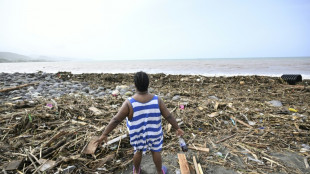 Funds for climate adaptation 'lifeline' far off track: UN
Funds for climate adaptation 'lifeline' far off track: UN
-
Record Vietnam rains kill seven and flood 100,000 homes
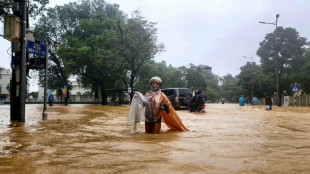
-
 Markets extend record run as trade dominates
Markets extend record run as trade dominates
-
Sudan govt accuses RSF of attacking mosques in El-Fasher takeover
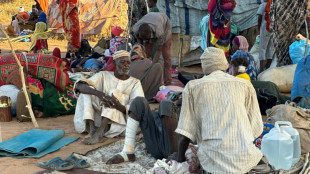
-
 Rain washes out 1st Australia-India T20 match
Rain washes out 1st Australia-India T20 match
-
Spain's Santander bank posts record profit

-
 FIA taken to court to block Ben Sulayem's uncontested candidacy
FIA taken to court to block Ben Sulayem's uncontested candidacy
-
Chemicals firm BASF urges EU to cut red tape as profit dips

-
 Romania says US will cut some troops in Europe
Romania says US will cut some troops in Europe
-
Israel hits dozens of targets as Gaza sees deadliest night since truce
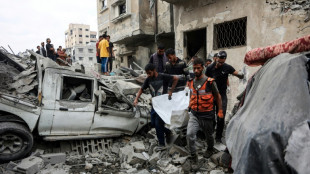
-
 Mercedes-Benz reassures on Nexperia chips as profit plunges
Mercedes-Benz reassures on Nexperia chips as profit plunges
-
France tries Bulgarians over defacing memorial in Russia-linked case
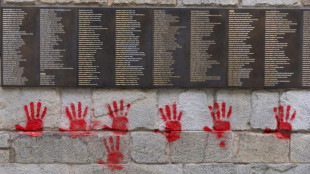
-
 BBC says journalist questioned and blocked from leaving Vietnam
BBC says journalist questioned and blocked from leaving Vietnam
-
UK drugmaker GSK lifts 2025 guidance despite US tariffs

-
 Mercedes-Benz profit plunges on China slump and US tariffs
Mercedes-Benz profit plunges on China slump and US tariffs
-
South Korea gifts Trump replica of ancient golden crown

-
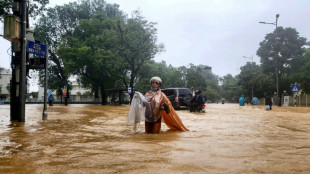 Record Vietnam rains kill four and flood 100,000 homes
Record Vietnam rains kill four and flood 100,000 homes
-
Norway's energy giant Equinor falls into loss

| CMSD | -0.28% | 24.57 | $ | |
| JRI | -1.59% | 13.83 | $ | |
| BCC | -2.74% | 70.44 | $ | |
| CMSC | 0.28% | 24.327 | $ | |
| RIO | 0.83% | 72.59 | $ | |
| SCS | -3.96% | 16.045 | $ | |
| NGG | -1.28% | 75.68 | $ | |
| RYCEF | -0.65% | 15.36 | $ | |
| RBGPF | -0.11% | 79 | $ | |
| BTI | -1.44% | 51.715 | $ | |
| AZN | -0.79% | 81.96 | $ | |
| BP | 2.27% | 35.26 | $ | |
| GSK | 4.9% | 45.95 | $ | |
| BCE | -0.62% | 23.425 | $ | |
| RELX | -3.31% | 44.75 | $ | |
| VOD | -2.86% | 11.895 | $ |

Stay or go? Dilemma facing last of the Afghan Sikhs
The caretaker of the last Sikh temple in Kabul to regularly host open prayer surveysthe cavernous hall where throngs once gathered in worship.
Only a handful are left now.
"Afghanistan is our country, our homeland," said Gurnam Singh. "But we are leaving out of sheer hopelessness."
In the 1970s, Afghanistan's Sikh population numbered 100,000, but decades of conflict, poverty and intolerance have driven almost all of them into exile.
The Soviet occupation, subsequent Taliban regime and bloody US-led military intervention winnowed their numbers to just 240 last year, according to figures kept by the community.
After the Taliban returned to power in August, opening the newest chapter in Afghanistan's dark history, a fresh wave of Sikhs fled the country.
Today, Gurnam Singh estimates just 140 remain, mostly in the eastern city of Jalalabad and in Kabul.
- Spiritual home -
These remaining devotees trickle into the Karte Parwan Gurdwara temple for a recent prayer session on a wintry Monday.
Men stand to one side, women the other -- about 15 in total.
Sitting barefoot on a floor covered with thick red rugs, they warm themselves around stoves and listen to a recitation from the Guru Granth Sahib, the Sikh holy book.
In November, the temple had three copies, but two have since been sent to New Delhi for "safekeeping".
Sikhs have long faced discrimination in Muslim-majority Afghanistan. Poverty is rife and attacks from the Islamic State-Khorasan, the jihadist group's Afghan chapter, are a real threat.
The overwhelming majority of Sikhs fleeing Afghanistan have landed in India, where 90 percent of the religion's 25 million global adherents live, mainly in the northwest region of Punjab.
Since the Taliban takeover, India has offered exiled Sikhs priority visas and the opportunity to apply for long-term residency. There is no sign yet that citizenship is on the table.
Pharmacist Manjit Singh, 40, is among those who turned down the offer, despite his daughter having emigrated there with her new husband last year.
"What would I do in India?" he asked. "There is no job or house there."
Among the remaining holdouts, the prospect of leaving is particularly wrenching: it would mean abandoning their spiritual home.
"When this gurdwara was built 60 years ago, the whole area was full of Sikhs," said 60-year-old community elder Manmohan Singh.
"Whatever joy or sorrow we felt, we shared it here."
- Leaving home -
From the outside, the temple is largely indistinguishable from other buildings on the street.
But security here is markedly high, with body searches, ID checks and two fortified doors.
In early October, unidentified gunmen forced their way inside and vandalised the sacred space.
The incident had ugly echoes of the most scarring attack on the Afghan Sikh community.
In March 2020, members of IS-K assaulted the Gurdwara Har Rai Sahib in Shor Bazar, a former enclave of Kabul's Sikh community, killing 25.
Since the attack, that temple -- and the nearby DharamshalaGurdwara, the capital's oldest Sikh house of worship at an estimated 500 years -- have been abandoned.
Paramjeet Kaur was struck by shrapnel in her left eye during the IS-K attack, and her sister was among those killed.
In the weeks that followed, Kaur packed her bags and headed for Delhi, but "we had no work and it was expensive, so we came back", she said.
That was in July, a few weeks before the Taliban returned to power.
Now Kaur, her husband and three children are fed and housed by Karte Parwan Gurdwara.
Her children do not go to school, and Kaur never ventures beyond the walls of the temple, the only place where she feels safe.
She thinks about leaving again, this time for Canada or the United States.
"My son and daughters are still small," she said. "If we leave, we can make something of our lives."
P.AbuBaker--SF-PST
